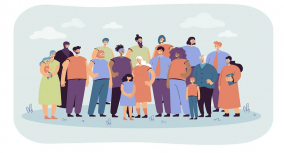Want to know more about the key Pride & Prejudice themes & ideas? This article by Custom-Writing.org experts is here to help you out! In the first section, the main themes of the novel are described. These include love & marriage, social class, and reputation. The other sections aim to analyze Pride & Prejudice symbolism, imagery, metaphors, and satire.
Pride and Prejudice is a novel of manners written by Jane Austen in 1813. Authenticity, simple plot, and profound psychologism make this book a memorable milestone. Austen moderately uses literary devices, preferring such indirect seams as sarcastic humor, caprice, and a mixture of quick parts.
The novel has almost no description of landscapes, dresses, facial traits, or settings. But the reader does not lack them. All the necessary details are exposed through the characters’ actions or in dialogues. Austen mentioned that her novel is too shiny and glittering. She even thought of adding a serious chapter about Napoleon or Walter Scott. Still, we perceive this feature as her unique and signature style that plays for the benefit of the meaning.
🗝️ Pride & Prejudice: Themes
Pride and Prejudice depicts the XIX century society with all its flaws and concerns. Love, marriage, social class, and reputation become the central themes in the book. The list could be extended, although we will discuss the most prominent motifs.
Love, marriage, social class, and reputation become the central themes in the book.

Love & Marriage in Pride & Prejudice
The theme of love and marriage in Pride and Prejudice is the central issue for every character. For Austen, love that does not culminate with the wedding is pointless and frustrating. The novel resembles a sequence of different alliances. Austen’s purpose was to seek the distinctions between a successful and unsuccessful family union. The essential criterion for a happy couple is their equality in intelligence and love. Although she never mentioned it in the novel, respect also played a crucial role in the protagonists’ relationships.
Marrying a wealthy person of higher social class was the fundamental preoccupation of women in the XIX century. This fact was caused by the inferior woman’s position in those days. She had no right to inherit a parents’ house, not to mention that she wasn’t allowed to work. Thus, the only socially acceptable source of money was a good marriage.
To be fond of dancing was a certain step towards falling in love; and very lively hopes of Mr. Bingley’s heart were entertained.
Pride & Prejudice,
chapter 3
Happiness in marriage is entirely a matter of chance. If the dispositions of the parties are ever so well known to each other or ever so similar beforehand, it does not advance their felicity in the least.
Pride & Prejudice,
chapter 6
Indeed, Jane, you ought to believe me. No one who has ever seen you together can doubt his affection. Miss Bingley, I am sure, cannot. She is not such a simpleton. Could she have seen half as much love in Mr. Darcy for herself, she would have ordered her wedding clothes.
Pride & Prejudice,
chapter 21
In vain I have struggled. It will not do. My feelings will not be repressed. You must allow me to tell you how ardently I admire and love you.
Pride & Prejudice,
chapter 34
I might as well inquire… why with so evident a desire of offending and insulting me, you chose to tell me that you liked me against your will, against your reason, and even against your character?
Pride & Prejudice,
chapter 34
Social Class in Pride & Prejudice
In the novel, the class does not define whether a person is good or evil, intelligent or superficial, happy or miserable. But it does define other people’s perception of such a person. A high social class can guarantee respect, reverence, interest, and even money. Every single interaction in the novel is governed by social class.
Elizabeth and Darcy pertain to the same social class. However, Darcy’s fortune and Pemberley mansion are among the most prominent estates of the landed gentry. Meanwhile, Elizabeth’s parents are poor, and a distant relative will inherit their house. The end of the story implies that the successful marriages of Elizabeth and Jane will save Mr. and Mrs. Bennet from poor sunset years. Moreover, Elizabeth financially helps Lydia, as her husband, Mr. Wickham, is an impenitent gambler. These facts suggest that a successful marriage is a blessing for the entire family, not just for the bride.
Quotes on Class in Pride & Prejudice
They were of a respectable family in the north of England; a circumstance more deeply impressed on their memories than that their brother’s fortune and their own had been acquired by trade.
Pride & Prejudice,
chapter 4
I have an excessive regard for Miss Jane Bennet, she is really a very sweet girl, and I wish with all my heart she were well settled. But with such a father and mother, and such low connections, I am afraid there is no chance of it.
Pride & Prejudice,
chapter 8
Mr. Gardiner was a sensible, gentlemanlike man, greatly superior to his sister, as well by nature as education. The Netherfield ladies would have had difficulty in believing that a man who lived by trade, and within view of his own warehouses, could have been so well-bred and agreeable.
Pride & Prejudice,
chapter 25
Reputation in Pride & Prejudice
Reputation was a central theme in those days’ English literature, even more than it is now. Both men and women were concerned about their status, but for the latter, a single dubious event could close all doors and cut off any hopes for a good marriage. Any woman stepping outside the social norms risks becoming an outcast.
The first glimpse of this problem was seen when Caroline reacted with disgust when Elizabeth arrived at Netherfield with dirty skirts. The reader also sees the dramatic decay of Mrs. Bennet’s reputation due to her ridiculous and straightforward behavior. These two examples of tarnished reputation seem to be trivial and foolish. However, when Lydia runs away with a man who does not want to marry her, the reader gets the full picture of the utmost seriousness of reputation for women. Darcy’s intervention is not as generous from a modern perspective as it was in the XIX century. He saved not just Lydia. All the Bennet family would become unfavorable in any decent house if Darcy did not make Wickham marry Lydia.
Reputation Quotes from Pride & Prejudice
To walk three miles, or four miles, or five miles, or whatever it is, above her ankles in dirt, and alone, quite alone! What could she mean by it? It seems to me to show an abominable sort of conceited independence, a most country-town indifference to decorum.
Pride & Prejudice,
chapter 8
My younger sister has left all her friends—has eloped; has thrown herself into the power of—of Mr. Wickham. They are gone off together from Brighton. You know him too well to doubt the rest. She has no money, no connections, nothing that can tempt him to—she is lost for ever.
Pride & Prejudice,
chapter 46
They agree with me in apprehending that this false step in one daughter will be injurious to the fortunes of all the others; for who, as Lady Catherine herself condescendingly says, will connect themselves with such a family?
Pride & Prejudice,
chapter 48
⚙️ Pride & Prejudice: Analysis
Symbolism in Pride & Prejudice
The novel relies on the dialogues, not on the description. That is why there is no explicit symbolism. However, one could single out specific activities and objects that bear a deeper meaning. For Austen, reading is a way to distinguish between intelligent and narrow-minded people.
All this she must possess… and to all this she must yet add something more substantial, in the improvement of her mind by extensive reading.
Pride & Prejudice,
chapter 8
Excessive romanization and moralization depend on the preferred kind of books.
Another symbolic activity is dancing. Compatibility in a dance of a couple defines the success of their relationships.
The outdoor setting symbolizes openness and sincerity, as the most open conversations took place outside the buildings, far from the social postulates.
Pemberley estate represents the best traits of Darcy’s character: lack of pretension, good taste, and welcoming atmosphere.
Imagery in Pride & Prejudice
Most of the novel consists of dialogues, whereby the reader learns about the characters’ lives, motives, and relationships. However, some images are recurring, highlighting their importance. For instance, red color stands for passion: Lydia and Kitty admire “men in red,” i.e., the military.
The imagery of Mr. Collins’ austerity lies in the comparison between his plain and undecorated house standing near Lady Catherine’s architectural masterpiece. However, his extreme attention to the decorations of Longbourn estate, even though they are few, points out his greediness and pursuit for the Bennets’ fortune.
Metaphors in Pride & Prejudice
Playing the piano is one of the most remarkable metaphors in the novel. It represents persistence and self-discipline, as well as self-awareness. At the first ball, Mary Bennet plays the piano, ignorant of her lack of taste and skill. Lady Catherine boasts of her perfect education and ability to play as if talent consists of education only.
Miss Bennet would not play at all amiss if she practised more, and could have the advantage of a London master. She has a very good notion of fingering, though her taste is not equal to Anne’s. Anne would have been a delightful performer, had her health allowed her to learn.
Pride & Prejudice,
chapter 32
Elizabeth can play the piano as well, although she knows her limits.
The stylistic differences of estates are the metaphors of the characteristic features of the people who inhabit or visit them. Elizabeth liked Pemberley, suggesting that she also has a refined taste and appreciates simplicity.
And of this place… I might have been mistress! With these rooms I might now have been familiarly acquainted! Instead of viewing them as a stranger, I might have rejoiced in them as my own, and welcomed to them as visitors my uncle and aunt.
Pride & Prejudice,
chapter 43
Mr. Collins is very concerned with worldly blessings, and he lives near the pompous estate of Lady Catherine De Bourgh. There is no detailed description of Longbourn estate, but one can assume that it is comfortable and proper, with “decent rooms.” The Bennets used to be richer in the past, but they preserved their social status.
Satire in Pride & Prejudice
Jane Austen uses satire to highlight the absurdity of stereotypes of her time. The main target of her ridicule is the silliness of the fuss about marriage. In the late XVIII and early XIX, women were expected to marry a wealthy and powerful man. The best thing a woman could do in her life was giving birth to a boy and raise him as a decent member of society. Thus, women often did not expect anything more from themselves than to marry a relatively handsome man with a fortune and to have male children.
Austen also uses a satirical tone when depicting arrogance and pride. From her point of view, these traits hinder healthy communication and spoil relationships.
We hope that the above information is useful. If you’re looking for exciting essay ideas on the novel, please read this article.






